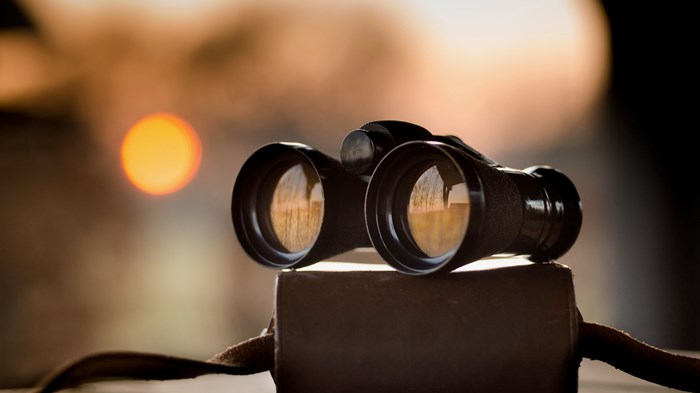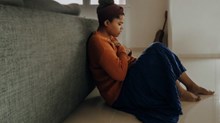Praying for Eyes to See: A Different Kind of New Year's Resolution

While preparing for a New Year’s Day sermon, I realized the lectionary reading was Matthew 25:31-46 (Jesus’s teaching on the sheep and the goats). Having recently co-authored a book on poverty alleviation, I knew this text–a piercing call to care for those in the world who are vulnerable. My concern, however, was that I wouldn’t have anything fresh to say about it. I also thought a text about doing more, on a day when people are already anxious about making resolutions for the new year, would not be wise. However, I went ahead and read the text to do my due diligence.
As I sat with Jesus’s words, my eyes were drawn to one word that is repeated multiple times. It comes in the responses to the king’s declarations. Jesus pronounces that the righteous are those who fed Him when He was hungry, gave Him a drink when He was thirsty, invited Him in as a stranger, clothed Him when He was naked, cared for Him when He was sick, and visited Him in prison. The unrighteous are those who failed to show compassion to Him when he was vulnerable.
Upon hearing these verdicts, those on His right inquire, “Lord, when did we see you hungry and feed you, or thirsty and give you something to drink? When did we see you a stranger and invite you in, or needing clothes and clothe you? When did we see you sick or in prison and go to visit you?” (NIV) Those on the left ask the same basic question: When did we see you?
In chapter five of our book Development in Mission: A Guide for Transforming Global Poverty and Ourselves, we lay out a suggested path for how congregations can effectively engage in transformational development. Though the bulk of our book advocates for individuals and churches to learn from experts, develop strong partnerships, and seek out best practices in various sectors of development, we want to say emphatically that “the first act of transformational development is prayer” (183). We call God’s people to spend time praying and discerning what they can do to care for those who are vulnerable, both near and far.
I stand behind what we wrote. But, after having my eyes opened to Jesus’s words in Matthew 25, I would like to tweak our appeal. See, the primary problem with those to the left of the king is not that they didn’t do enough. The issue is that they didn’t see. They could not act because they didn’t have the eyes to see the humanity–or the divinity–in their vulnerable neighbors. We can’t take the first step to love and care for those who are suffering if we do not open our eyes to see as God sees. The first act of caring for those who are vulnerable is prayer—a prayer to have eyes to see.
Interestingly, the other New Testament text in the lectionary for January 1st is Revelation 21:1-6. It begins with John describing what he sees: “a new heaven and new earth” and “the holy city, the new Jerusalem, coming down out of heaven from God.” He goes on to write, “And I heard a loud voice from the throne saying, ‘See, the home of God is among mortals.’” And he crescendos with, “And the one who was seated on the throne said, ‘See, I am making all things new.’” (NRSV)
The Christian faith is not so much about doing good, doing right, or doing more. It is about seeing correctly. Do we see the imago Dei in our neighbors? Can we see the goodness of God’s creation all around us? Do we see God’s kingdom coming in simple and beautiful ways? Can we see all the ways Jesus is making things new? As Leighton Ford writes in The Attentive Life, life “requires not so much doing for God as paying attention to what God is doing.”
So, as we make goals for this new year, maybe we shouldn’t come up with a long list of things we want to do. Instead, let’s make 2023 the year during which we pray for God to give us eyes to see. Eyes to see Jesus in our vulnerable neighbors. Eyes to see Jesus making all things new.
Whoever has eyes, let them see.
Derran Reese is the co-author of Development in Mission: A Guide for Transforming Global Poverty and Ourselves. He currently serves as the Director of Experiential Learning at Abilene Christian University where he also teaches classes on global mission. He has worked for the International Rescue Committee and, before that, served as a missionary in Thailand.
The Better Samaritan is a part of CT's
Blog Forum. Support the work of CT.
Subscribe and get one year free.
The views of the blogger do not necessarily reflect those of Christianity Today.






















